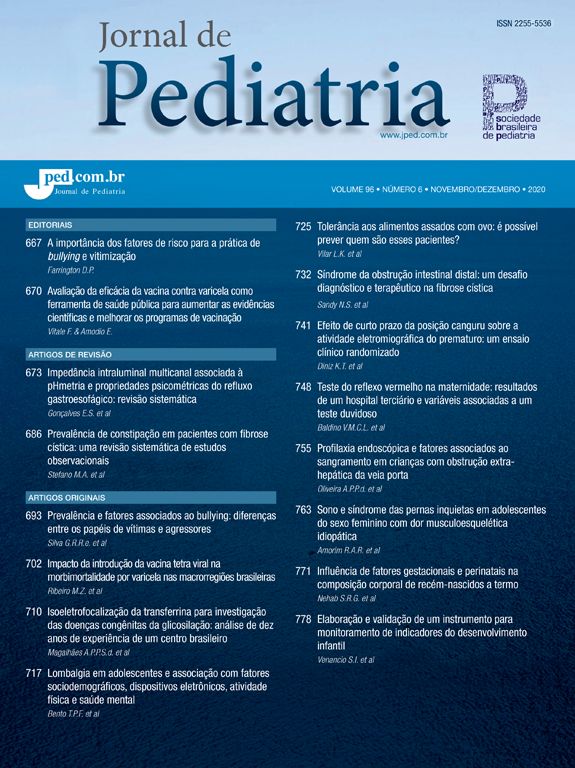To assess the theoretical-methodological aspects underlying the research about disease and daycare centers. Socioeconomic and cultural changes are increasingly leading families to share childcare and education with daycare centers. Nevertheless, this practice has been widely criticized. Medical literature, for example, points to the high risk of illnesses in these environments.
MethodWe reviewed the scientific production of the last five years on Current Contents, MEDLINE and LILACS, using -crèche- and -daycare center- as keywords.
ResultsWe retrieved 665 articles and organized them in subgroups. We then focused on the 34 articles on respiratory infectious diseases: 22 of them were empirical studies, and the other 12 were theoretical studies, review articles, or other types of studies. The empirical articles described studies of large populations. These studies collected data from interviews, medical reports and laboratory findings, and 50% were cross-sectional. The correlation between disease and daycare was obtained mainly by quantitative analysis, based on a multivariate model and logistic regression. The conclusion in 70% of these articles was that attending a daycare center implies a high risk of illness, especially for children younger than 2 years. All the articles with a preventive character clearly point to alternative solutions (vaccination, immunity stimulation, environmental organization) for this clinical and social problem, while 50% of the other articles more subtly point to similar solutions.
ConclusionThe organization of most articles and the discussions presented seem to be guided by implicit assumptions, based on conceptions of an ideal situation of care (at home, by the mother). Large populations and sophisticated statistic systems legitimize the results. Nevertheless, they express risk predictions, which highlights the static rather than the dynamic aspects of health/disease processes. Finally, they approach a social problem from individual clinical assumptions.
Transformações socioeconômicas e culturais têm crescentemente induzido as famílias ao compartilhamento dos cuidados e educação de crianças com instituições creche. Entretanto, tal prática tem sofrido questionamentos, como da literatura médica, que frisa o alto risco de adoecimento das crianças nesses ambientes. Procurando-se avaliar aspectos teórico-metodológicos de base das investigações doença/creche, realizou-se revisão bibliográfica.
MétodoLevantou-se produção dos últimos 5 anos, pelas fontes Current Contents, Med-Line e LILACS, com palavras-chaves creche / day care center.
ResultadoForam obtidos 665 artigos, organizados em subgrupos. Selecionou-se o de doenças respiratórias infecciosas, resultando 34 artigos - 22 empíricos e 12 teóricos, revisão, etc. Os artigos empíricos utilizaram grandes amostras de sujeitos; dados foram colhidos através de questionários, relatórios médicos e/ou laboratoriais; 50% são transversais. A relação doença/creche foi feita a partir de análises quantitativas, baseadas em análises multivariadas e de regressão logística. Setenta por cento concluíram que creche apresenta alto risco de adoecimento, especialmente para menores de 2 anos. Os artigos de caráter preventivo, muito claramente, e 50% dos demais, sutilmente, apontam soluções alternativas ao problema clínico/social (vacinação, estimulação da imunidade, organização ambiental).
ConclusãoA estruturação e a discussão da maioria dos estudos revelam serem regidos por pressupostos implícitos, marcados por concepções de situação -ideal- de cuidado (em casa, pela mãe). Legitimam-se os resultados através de grandes amostragens e sofisticados sistemas estatísticos. Entretanto, expressam-se na predição de risco, o que destaca os aspectos estáticos e não os dinâmicos do processo saúde/doença. Finalmente, tratam de problemática social a partir de pressupostos clínicos individuais.








